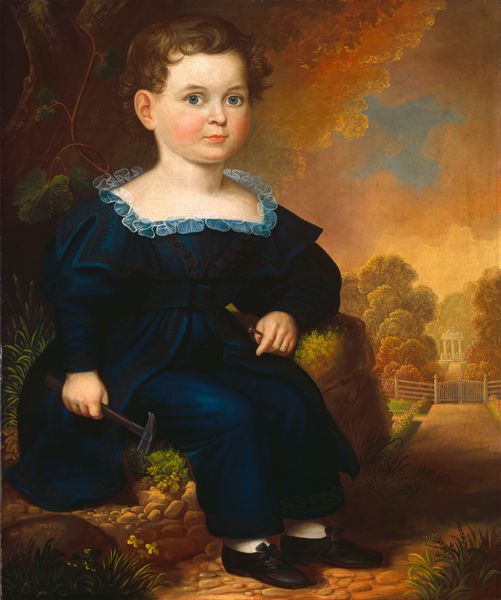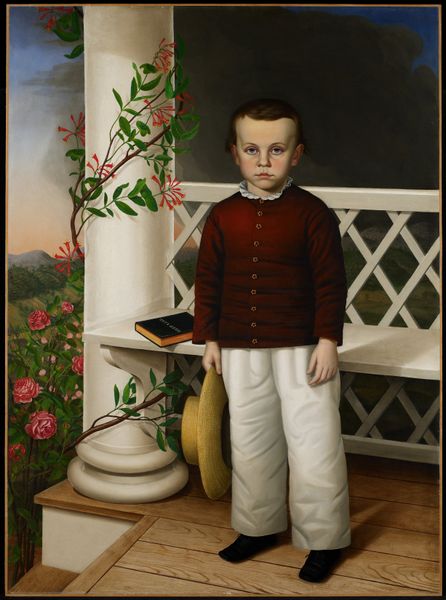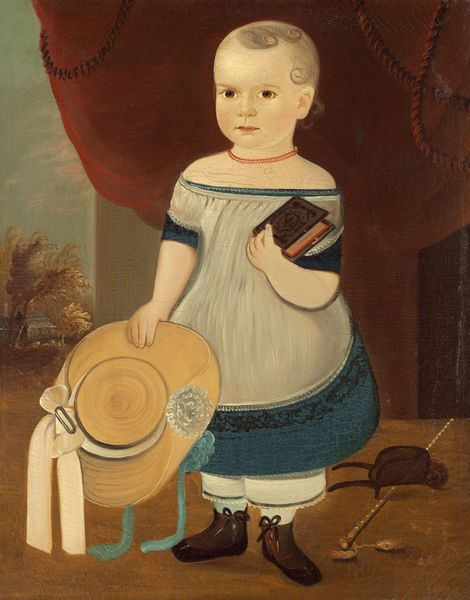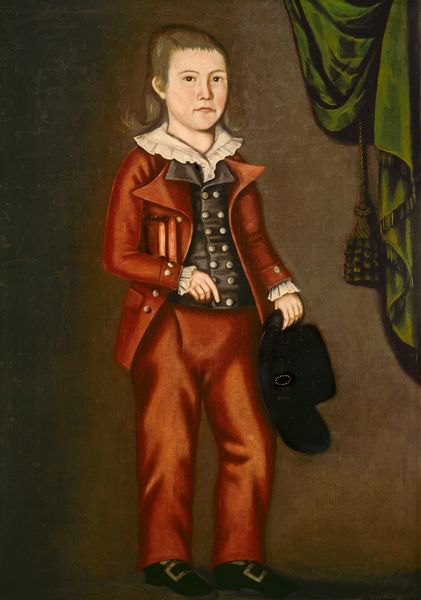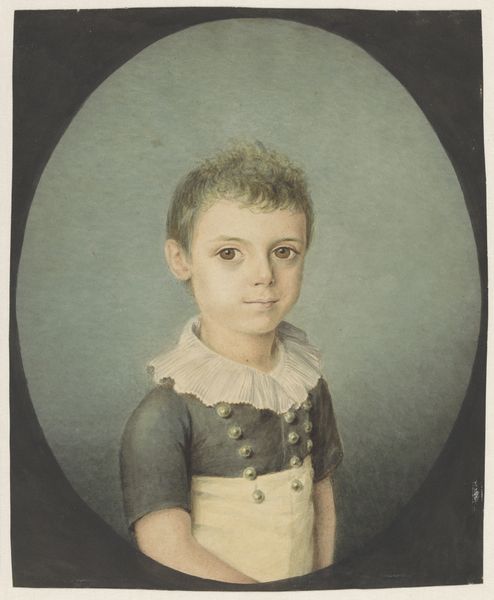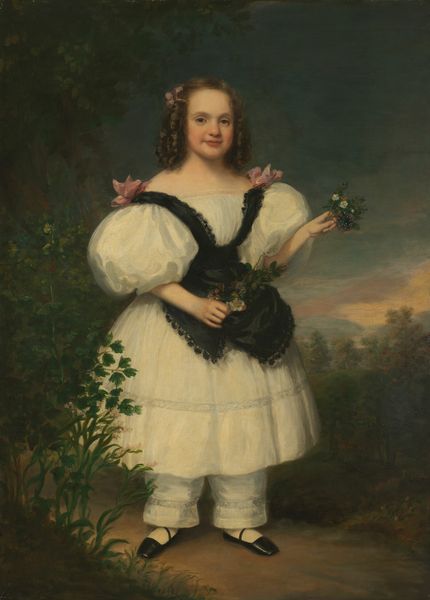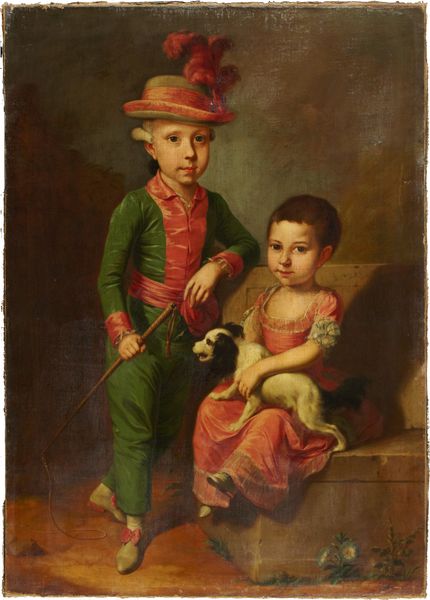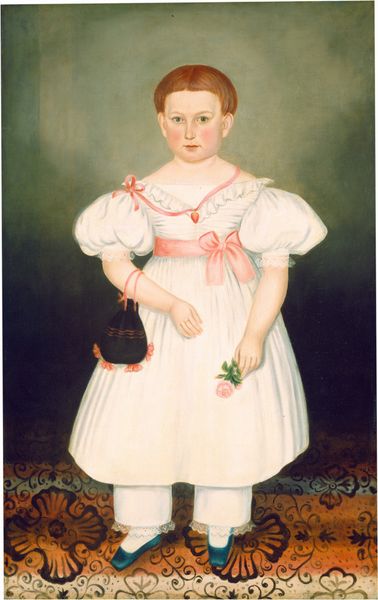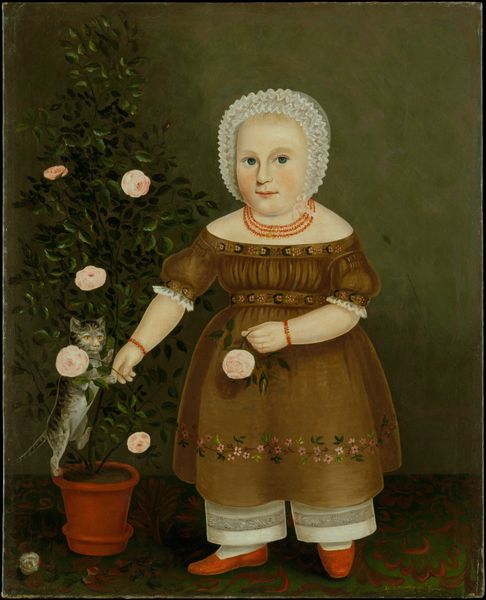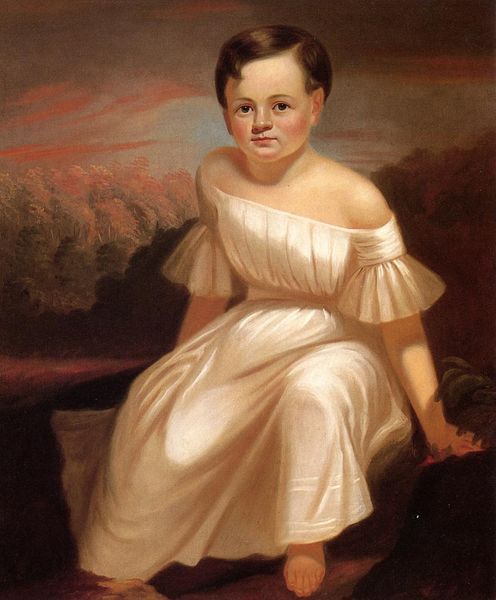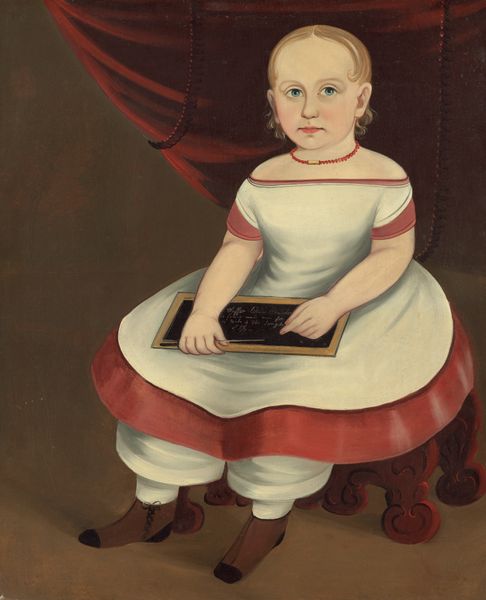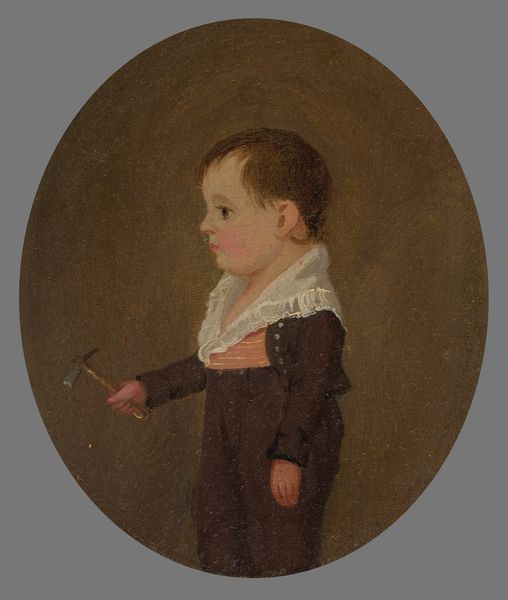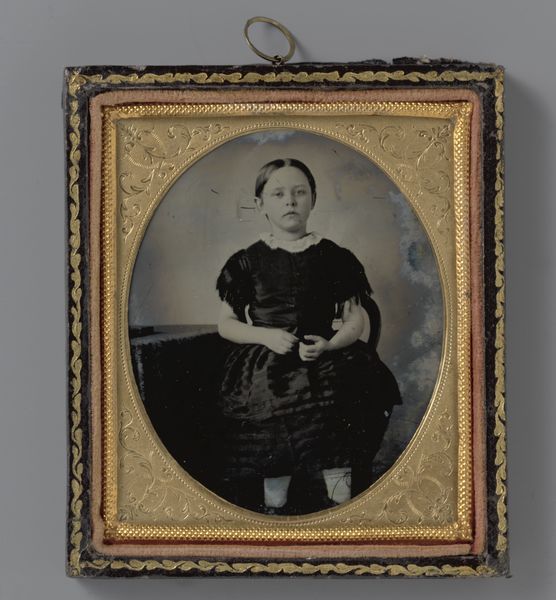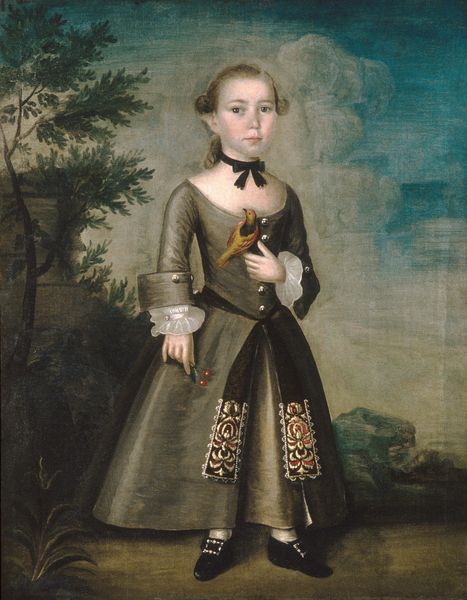
painting, oil-paint, oil-on-canvas
#
portrait
#
painting
#
oil-paint
#
figuration
#
portrait reference
#
united-states
#
genre-painting
#
early-renaissance
#
oil-on-canvas
#
portrait art
Dimensions: 26 1/4 × 19 3/8 in. (66.68 × 49.21 cm) (sight)29 5/16 × 22 3/8 in. (74.45 × 56.83 cm)
Copyright: Public Domain
Joshua Johnson, a relatively unsung artist of the late 18th and early 19th century, painted this portrait of Richard John Cock using oil on canvas. Consider the material reality of painting at this time: pigments painstakingly ground and mixed, stretched canvas representing a significant investment. Johnson, as one of America's first professional African-American painters, would have had to navigate a complex social landscape to gain access to these materials and the patronage necessary to make a living. Note the somewhat stiff, naive quality of the painting. Johnson was self-taught, and this directness is part of the picture’s charm. But it also reflects the realities of artistic production in a young nation, where formal training was scarce and artists often relied on ingenuity and resourcefulness. The portrait speaks to the aspirations of a rising middle class, eager to display their status through material goods and artistic representation. Looking at the painting, we see not just an individual, but the intersection of artistic skill, social mobility, and the material conditions of early American life.
Comments
minneapolisinstituteofart about 2 years ago
⋮
Joshua Johnson was the earliest documented professional Black portrait painter in the United States, who forged a successful career primarily in Baltimore, Maryland. A freedman, Johnson attracted prominent clients through a newspaper advertisement referring to himself as a “self-taught genius” inspired by nature. His patrons included politicians, doctors, clergymen, and merchants. Johnson made several paintings memorializing children after their deaths, commissioned by their grieving families. This full-length portrait depicts Richard John Cock, who died at age 9 in 1817. Here, Richard stands in a lush garden, surrounded by sweet-scented roses and pointing to a moth. Because of the insect’s life cycle, this symbol is aligned with the hope for rebirth, regeneration, transformation, and change.
Join the conversation
Join millions of artists and users on Artera today and experience the ultimate creative platform.
